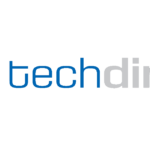Quantum professionals around the world overwhelmingly agree that quantum utility will arrive within the next decade, according to a new survey by Economist Impact.
Quantum utility refers to the point at which quantum computers provide practical advantages over classical computers in solving specific real-world problems. A whopping 83% of the survey’s respondents think that moment will come within 10 years or less.
One-third of them are even more optimistic, predicting that quantum utility could be achieved within the next one-to-five years. That’s more in line with the roadmaps of quantum companies like Finnish startup IQM, which is targeting quantum utility as early as next year.
Some of the world’s biggest tech leaders have also cast their predictions on this hot topic in recent months. In February, Google’s CEO Sundar Pichai said he believes “practically useful” quantum computers are five-to-10 years away. A month earlier, Nvidia’s Jensen Huang suggested we’re still at least 15 years out — a comment that sent quantum stocks tumbling.
The discrepancy in estimates reflects the uncertainty over when quantum will have its breakout moment. It also points to a broader confusion over quantum jargon.
Quantum utility will mean that quantum computers can solve meaningful real-world problems. However, even within the industry, the term is often used interchangeably with quantum “advantage” or “supremacy,” which is widely considered the point at which quantum computers outperform classical ones.
Economist Impact — a research-driven consultancy and content arm of Britain’s Economist Group — illustrates how muddled the terms have become in its own press release: “Quantum utility [is] when quantum computers will overcome hardware and error correction challenges to perform better than classical computers.”
That makes the next finding from the survey quite fitting.
Quantum utility challenges
Over half of the respondents believe misconceptions about quantum computing are actively hindering advancement. The findings highlight a gap between technological progress and business preparedness, emphasising the need for improved education about what quantum computing is.
Public misunderstanding of quantum computing is far from the biggest headache for quantum professionals, however. Overcoming engineering challenges and acquiring enough talent to grow are right at the top of the list of concerns.
Over 80% of respondents cited overcoming technical challenges — particularly error correction — as a key hurdle to reaching quantum utility.
Three-quarters identified a shortage of talent and expertise as a critical issue. Quantum experts are in short supply, exacerbated by the rapid growth of the quantum sector, where startups and tech giants alike are competing for a small pool of qualified professionals.
Tapping into the subatomic world of quantum mechanics to perform useful calculations was never going to come easy, though. It is one of the toughest challenges in modern science — but if cracked, the payoff could be huge.
Quantum computers have the potential to solve problems that are far beyond the reach of today’s most powerful supercomputers. They could simulate complex molecules for drug discovery, design new materials from the atomic level up, and revolutionise logistics and finance by cracking massive optimisation problems. They could also break all internet encryption on what is known as Q-Day — so there are risks, too.
Europe’s race to secure leadership in quantum is on the agenda for TNW Conference, which takes place on June 19-20 in Amsterdam. Tickets for the event are now on sale. Use the code TNWXMEDIA2025 at the check-out to get 30% off the price tag.






